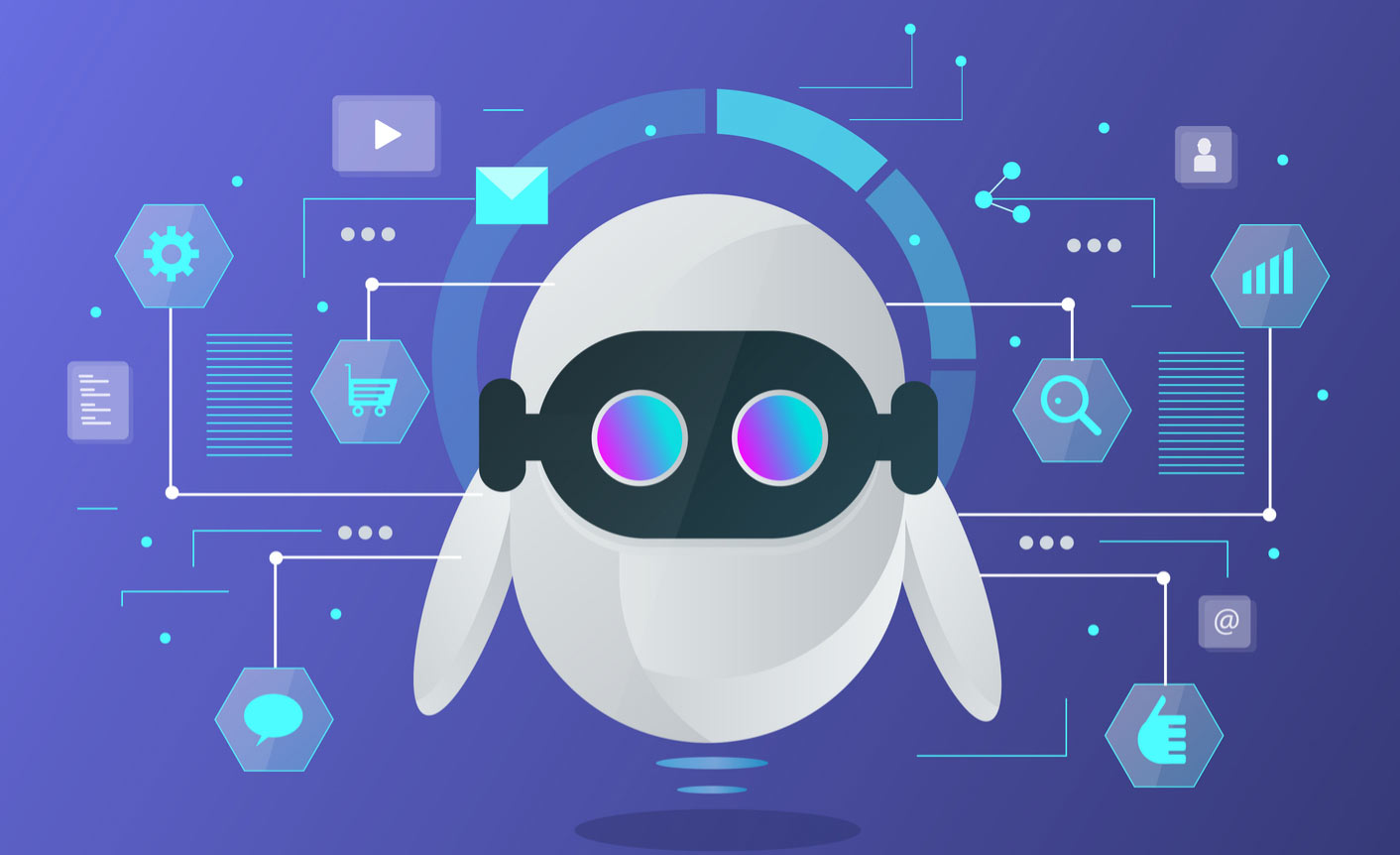In the ever-evolving world of content marketing, staying ahead of the competition requires embracing cutting-edge technologies. Artificial Intelligence (AI) has emerged as a game-changer, enabling businesses to create better, more accurate, and personalized content at scale.
Google CEO Sundar Pichai once said that Artificial Intelligence (AI) is one of the “most important things humanity is working on… more profound than… electricity or fire.” That quote has reverberated across every industry, and content marketing is no exception.
From analyzing data to automating content creation and enhancing audience engagement, content generation tools offer a plethora of opportunities for content marketers. If you’re eager to harness the power of AI and take your content marketing strategy to new heights, this blog post is a great place to start.
A brief history of AI
Artificial Intelligence (AI) has come a long way since its inception, with significant advancements in natural language processing (NLP) and the emergence of generative AI, enabling machines to create human-like content. Let’s take a brief journey through the history of AI to understand its evolution in these areas.
The roots of AI can be traced back to the 1950s when researchers began exploring the idea of creating machines that could simulate human intelligence. Early AI systems focused on rule-based approaches and symbolic reasoning, like the Logic Theorist developed by Allen Newell and Herbert A. Simon in 1956. It was capable of proving mathematical theorems using formal logic.
The field of NLP, which involves teaching computers to understand and generate human language, gained traction in the 1960s. ELIZA, created by Joseph Weizenbaum in 1966, was an early example of a natural language processing program. It could simulate conversation by recognizing keywords and generating appropriate responses.
In the 1990s, statistical approaches became more prevalent in NLP, and researchers began developing language models that relied on large datasets to understand context and meaning. One notable advancement during this time was the Hidden Markov Model (HMM), used for speech recognition.
Fast forward to the 21st century, and the explosion of big data, computational power, and deep learning techniques transformed NLP. In 2013, the word2vec algorithm, developed by Tomas Mikolov and his team at Google, allowed machines to learn word embeddings, leading to significant improvements in language understanding.
In 2018, OpenAI introduced GPT (Generative Pre-trained Transformer), a breakthrough model in generative AI. GPT-1 demonstrated the ability to generate coherent and contextually relevant text, making it a valuable tool for content creation. Building on this success, OpenAI unveiled GPT-3 in 2020, a massive language model with 175 billion parameters, enabling it to generate remarkably human-like text, answer questions, translate languages, and even write code.
Today, generative AI is used in various applications, including chatbots, content creation, virtual assistants, and more. Media outlets like The Associated Press have employed AI-driven content creation systems to produce earnings reports and other data-driven content more efficiently and at scale.
As AI and NLP continue to evolve, researchers and developers are constantly pushing the boundaries of what machines can achieve with language understanding and generation. We can expect further breakthroughs and exciting applications that will shape the future of AI and its impact on various industries, including content marketing and communication.
The 5 Ps for Getting Started with AI in content marketing
Using AI to create better, faster, more accurate content is already a reality. The Associated Press reports that it has gone from publishing 300 earnings reports a quarter to 3700 thanks to the help of AI systems. Meanwhile, since the rise of generative AI, enterprises are eagerly adopting AI for content generation into their content workflows. Clearly, the future is already here.
1. Planning
First, you need to analyze your existing position. There are tons of specific software options that can give you useful information on where you are and where you want to be. You can capture information on your competitors, monitor the digital ad space, and determine how much others spend, how many ads they bought, and what channels they’re using. You can also map content to the buyer journey, identify keywords and topic clusters that can be measured against things you’ve already written, and predict how your content will perform.
2. Production
Some software companies claim that machine-written subject lines for email out-perform human written ones 98 percent of the time. It may need 100,000 emails to learn from, but imagine a human trying to do that. To be able to create content at scale — across languages and across geographic markets, and to do it in the correct tone, using the right sentiment and adhering to brand guidelines — is a content marketer’s dream.
AI presents content marketers with the exciting opportunity to automate data-driven content creation. For instance, some software claims that machine-written subject lines for emails outperform human-written ones by a significant margin. While it might take a massive dataset for AI to learn from, the scalability and precision AI brings are unparalleled.
AI doesn’t replace human content creators but enriches their capabilities, enabling them to focus on higher-level tasks while automating routine content creation.
3. Personalization
Personalization has become a crucial aspect of successful marketing campaigns, and AI can take it to the next level. While humans might rely on generalized data to determine the optimal time to send emails, AI can analyze individual customer behavior to pinpoint the best time for engagement.
No matter whether you have 1,000 or 100,000 subscribers, humans will take a scattergun approach. They’ll set a rule that says send an email at a specific time and hope for the best. AI, on the other hand, can segment those customers at a whole different level. If, for example, just 1 percent of them open their emails at 11 pm on a Sunday night, then an AI system will make sure that the message arrives in those people’s inbox by 10.45 pm.
AI powered tools can segment your audience more effectively, ensuring that each customer receives personalized content tailored to their preferences and behaviors. By delivering content at the right time and in the right context, you can significantly improve customer engagement and conversion rates.
4. Promotion
Content promotion is a vital part of content marketing success, and AI can revolutionize how you approach it. AI-driven tools can analyze data to craft compelling social media posts, select appropriate images, suggest hashtags, and optimize publishing times for maximum impact.
Using AI’s capabilities, you can create highly effective social media campaigns that resonate with your audience. The software can analyze user behavior, recommend the most engaging colors, and even adjust the publishing schedule based on individual preferences, leading to enhanced results.
5. Performance
Measuring content performance and predicting what will resonate with your audience is critical for ongoing success. AI excels at collating and interpreting data, providing invaluable insights into content performance metrics and customer preferences.
AI-driven data analysis can help content marketers make more informed decisions about their content strategy, leading to higher-quality content that appeals directly to their target audience. By leveraging AI, content creators can craft more effective messages that drive engagement and boost conversions.
Moving Forward with AI Today
By exploring the AI capabilities within your existing marketing tools and considering emerging solutions, you can optimize your content marketing efforts and unlock new opportunities for growth. Embracing AI intelligently allows you to allocate more time and resources to creating intelligent, high-quality content that resonates with your audience.
AI has already revolutionized content marketing, enabling businesses to produce more impactful and targeted content while enhancing overall marketing strategies. By following the Five Ps – Planning, Production, Personalization, Promotion, and Performance – you can harness the power of AI and gain a competitive edge in today’s digital landscape. Embrace AI intelligently, and you’ll not only streamline your content creation processes but also provide your audience with the personalized and engaging experiences they crave. The future of content marketing is here, and it’s powered by AI.



